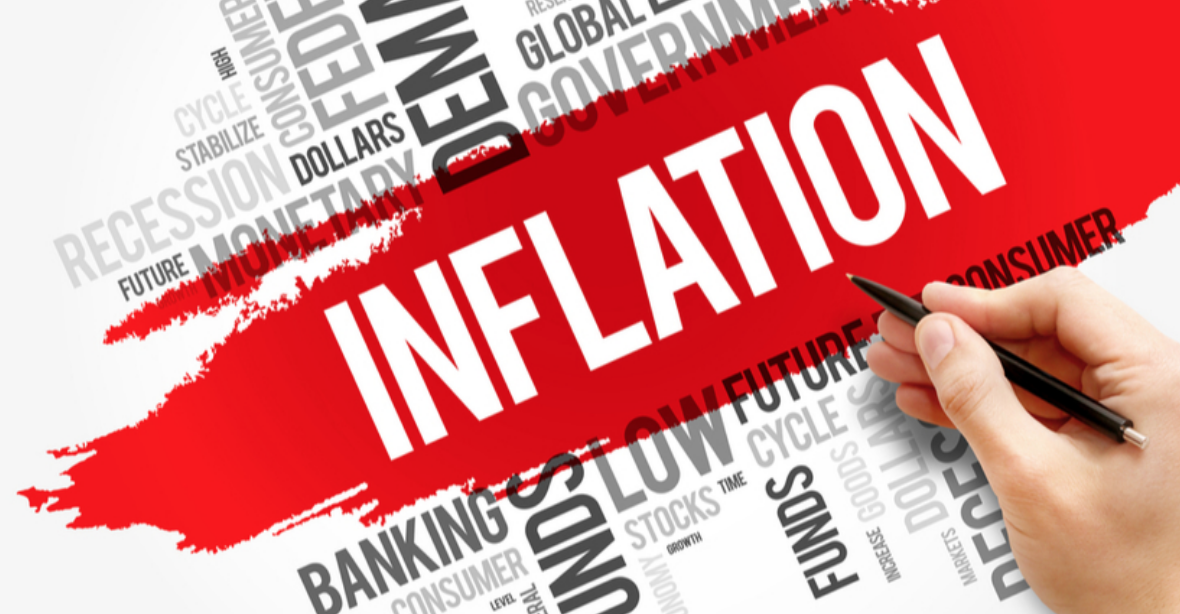This content is restricted to subscribers

The views, opinions and positions expressed by columnists and contributors are the author’s alone. They do not inherently or expressly reflect the views, opinions and/or positions of our publication.

This content is restricted to subscribers
The views, opinions and positions expressed by columnists and contributors are the author’s alone. They do not inherently or expressly reflect the views, opinions and/or positions of our publication.

This content is restricted to subscribers
The views, opinions and positions expressed by columnists and contributors are the author’s alone. They do not inherently or expressly reflect the views, opinions and/or positions of our publication.

This content is restricted to subscribers
The views, opinions and positions expressed by columnists and contributors are the author’s alone. They do not inherently or expressly reflect the views, opinions and/or positions of our publication.

Become a subscriber today!
Register
Become a subscriber today!
Register
Become a subscriber today!
Register
Well, it’s that magical time of year again, when we all hunker down in our homes in the face of yet another December COVID onslaught.
True this is somewhat depressing, but on the plus side the isolation gives us an opportunity to ponder things.
For example, right now, in the wake of Erin O’Toole’s disappointing showing, I’m pondering what it would take to create the perfect Conservative leader.
Yes, I know, this is a total waste of time, but hey, it’s a fun holiday exercise.
And right now, with everything that’s going on in the world, we need all the fun we can get, right?
So, let’s begin the frivolity.
First off, I’d argue the perfect Conservative leader would need a strong dose of former Prime Minister Stephen Harper’s sense of gravitas.
I say that because Harper’s strength as a politician was that he exuded seriousness; he actually had deep intellectual thoughts and was therefore able to offer leadership that went beyond vapid superficial glitz.
I mean, admit it, wouldn’t it be nice to have a political leader again who actually came across as an adult?
Of course, to complement his (or her) seriousness a perfect Conservative leader would also need to manifest former US President Ronald Reagan’s geniality.
Indeed, one chief reason for Reagan’s political success was that people tended to like him and people who liked him also tended to vote for him.
In short, likeability works.
Hence, the perfect Conservative leader would be somber, yet likeable.
Plus, in order to ensure he (or she) got a good hearing in Quebec, the perfect Conservative leader would also have to possess former Conservative Prime Minister Brian Mulroney’s fluency in French.
As a native Quebecor, Mulroney could speak the lingo with more authenticity than any leader who learned the language in French immersion classes.
Besides, as someone whose name escapes me once put it, “immersing yourself in the French language for more than five minutes can be fatal.”
At any rate, another quality a perfect Conservative leader would need in my opinion is the ability to brawl.
After all, politics is a blood sport and if you can’t duke it out in the political arena, odds are good, you’re going to lose.
Just ask Andrew Scheer or Erin O’Toole.
That’s why my perfect Conservative leader would also be imbued with former US President Donald Trump’s willingness to give as good as he got.
As a matter of fact, Trump is a master at concocting what American cartoonist Scott Adams called “linguistic kill shots.”
For example, in 2016 Trump brilliantly dubbed his Democratic opponent Hillary Clinton as “Crooked Hillary”.
Sure, it’s not exactly Disraelian-style rhetoric, but it’s effective.
And finally, my perfect Conservative leader would also have a strong commitment to a true conservative ideology, that’s to say a doctrine that stood for “more freedom”, “less government” and “free market” economics.
For this, he (or she) would have to be blessed with former British Prime Minister Margaret Thatcher’s personal courage and steely determination.
Recall, for example, how in 1980, when she was being urged by powerful voices to abandon her pro-free market agenda, Thatcher famously declared, “To those waiting with bated breath for that favorite media catchphrase, the ‘U-turn’, I have only one thing to say: You turn if you want to. The lady’s not for turning!”
In other words, just like the “Iron lady”, a perfect Conservative leader would bravely stick by his (or her) principles even if the political situation got rough.
So, there it is, that’s my recipe for a perfect Conservative leader.
Mind you, I’m under no illusions that the media would share my view.
In fact, if my perfect Conservative leader actually existed in reality, I’m certain the Canadian media would hate him (or her) with a red-hot intensity.
But then again, unlike the people who currently run the Conservative Party, pandering to the media’s prejudices is not my top priority.
The views, opinions and positions expressed by columnists and contributors are the author’s alone. They do not inherently or expressly reflect the views, opinions and/or positions of our publication.

Saudi Arabia has North America’s political establishment wrapped around its finger.
Along with Israel, it is one of the few states that can commit almost any offence, and still guarantee the complete, unfettered support from almost any administration, liberal or conservative.
In Canada, for instance, Saudi Arabia reached its zenith of influence during the tenure of former Conservative Party leader and Prime Minister, Stephen Harper.
While in office (2006-2015), Harper made the expansion of commercial relations with Saudi Arabia one of his government’s top priorities. That prioritization later bore (poisoned) fruit, when Harper and the Saudis brokered the largest arms deal in Canadian history. It’s a deal Harper still expresses pride in, despite the fact that military arms he sold enabled the Saudis to commit countless atrocities against civilians in neighbouring Yemen.
Nothing can quench Harper’s love affair for the Saudis though. It persists to this day, even in political retirement.
Just this fall, he traveled to Riyadh for a business trip and gushed about the “profound transformation” the Kingdom was experiencing. Most telling, he expressed not one single concern about its mass executions, its crackdown on human rights defenders or its subjugation of women and girls. It was all just fawning praise from the former PM.
Of course, Harper is not the only member of the Conservative Party to cozy up to the Saudis.
Prior to becoming Conservative Party leader, one of Harper’s political lieutenants, Erin O’Toole, pledged in the 2019 election to “win some trust” and increase commercial links with Saudi Arabia. A year before that, another dutiful neophyte, the former Foreign Affairs Minister John Baird, appeared on a Saudi-owned television station to chastise Prime Minister Justin Trudeau, after his then Global Affairs Minister Chrystia Freeland, for tweeting out support for the imprisoned Saudi activist and blogger, Raif Badawi.
It was a disgraceful and dishonourable move on Baird’s part; one that only served to humiliate him and severely damage his integrity, all while highlighting the Liberal’s more principled approach to taking on the Saudis. At that point, the Liberals had shown commendable nerve by suspending the arms deal that they had inherited from the Conservatives, after news broke that the Saudi Crown Prince had arranged for the brutal murder and dismemberment of journalist Jamal Khashoggi.
Unfortunately, the Liberal’s grit did not last long. In the face of Saudi pushback, the Liberals quickly abandoned their previous principle and became just as complicit as their Conservative predecessors. In no time at all, they reinstated the permits they had previously suspended and continued the exportation of light armored vehicles, along with sniper rifles, explosives, and other military equipment.
The political situation is much the same south of the border.
Soon after taking office in 2017, former Republican President Donald Trump snubbed traditional allies in Canada and Mexico by selecting Saudi Arabia as the destination for his first foreign trip. His government’s subsequent exportation of more than $8 billion worth of arms to the Saudis, with seemingly no regard for the immense misery and suffering experienced by Yemeni civilians – the disproportionate victims of Riyadh’s unlawful and indiscriminate airstrikes – was further proof of he (and his party’s) unbecoming allyship with the Gulf Kingdom.
For a time, the election victory of Joe Biden offered a brief moment of hope (just as it did in Canada with Trudeau’s 2015 electoral triumph) that the U.S. might pursue a more just and even-handed approach when dealing with the Saudis. In his first foreign policy speech as President, Biden declared that that the war in Yemen had to end and that his administration would be eliminating “all American support for offensive operations in the war in Yemen, including relevant arm sales.”
As you might have guessed, the public’s optimism didn’t last long.
Within a matter of months of delivering those lofty remarks, Biden had authorized the sale of $650 million of missiles to the Saudi Kingdom, along with hundreds of millions more in U.S. military maintenance for Saudi aircraft.
It was a move entirely out of the Trudeau Liberals’ playbook: promise a more humanitarian foreign policy when it is easy to do so (i.e., before an election) and then renege on your word once in office. Or in Trudeau’s case, after the first threats of financial retribution are made.
As recent history has shown, neither the centrist Liberals and the Democrats, nor the right-wing Conservatives and the Republicans, are capable of pursuing a foreign policy that is complicit-free from the war crimes and human rights abuses committed by the Saudi regime.
With the political establishment in both Canada and U.S. unwilling to stand up against the Saudi regime, it has once again fallen to the members of the public and their political champions on the social democratic left, to stand up against such immorality and demand real policy change from the status quo.
In the U.S., progressive standard-bearers like Democratic Rep. and Squad member Ilhan Omar and Independent Senator Bernie Sanders deserve credit for their legislative attempts to block Biden’s newest arms deal (together with strange political bedfellows, Republican Senators Rand Paul, and Mike Lee).
In Canada, Jagmeet Singh and his left-leaning team of third-party New Democrats deserve equal praise for their steadfast opposition of weapons sales to Saudi Arabia, and for their electoral promise in general to ensure that “Canadian-made weapons are not fueling conflict and human rights abuses abroad.”
Whatever their faults, Omar, Sanders, Singh, and their fellow social democrats are at least showing some bravery and morality by speaking out against both the Saudis and their own respective governments for facilitating violence and bloodshed. That in itself is whole lot more honourable than anything on display from the political establishment these days.
The views, opinions and positions expressed by columnists and contributors are the author’s alone. They do not inherently or expressly reflect the views, opinions and/or positions of our publication.

“What fresh hell,” the PM said, channeling us all as we stare down the threat of this omicron variant interrupting another holiday season.
“What fresh hell,” say I, as I prepare to write my annual year-end “hot or not” and prediction columns.
Here’s the first: my little annual tradition (defined, from my collegiate days, as “anything two men of college recall happening more than twice”) of who’s up, who’s down, and who really bothered me this year.
Justin Trudeau: Hot
The PM’s act might be wearing thin on a significant segment of the population, but his gamble to call an unnecessary election paid off, giving him his third straight win, and second straight almost-a-majority-but-not-quite mandate. He seems a bit disengaged, but his handling of COVID-19 has been a solid “good enough”, and whether he tries to keep governing for the long term or is into legacy mode, no one can deny he might be a bit greyer, but it’s still working for him.
Erin O’Toole: Not
He lost, when his job was to win. He also seems blithely unaware that he lost. I heard him speak, introducing former PM Brian Mulroney at the Churchill Society. It was unfair — the Tory grandee outclassed him in a way that was almost, inadvertently, mean.
Chrystia Freeland: Not
Count me as one Liberal not sold on her as heir apparent. She is losing the opening round of her tussle with Conservative rabble rouser Pierre Polievre. He might be over the top, and generally wrong on the economics, but he has a message about the cost of living most normal people can relate to, and even cheer on. Freeland, meanwhile, seems kind of annoyed that she has to explain why she is right, and others are wrong. Lecturing isn’t leading.
Pierre Polievre: Hot
See above.
Doug Ford: Hot
Love him or hate him or really hate him, the vast majority of Ontarians think he’s done OK this past year. It’s been far from perfect, but his heart is seemingly in the right place, and he gets things right, even if it’s on the third try. He also has a real message about housing affordability and traffic congestion. If he could fix his government’s seeming disdain for kids’ education and future, he’d be cruising to reelection. As it stands, he likely will win reelection next June, thanks in no small part to the utter lack of any spark in his two main opposition parties (see below).
Andrea Horwath & Steven Del Duca: Not
The two opposition leaders in Ontario are either invisible and being outflanked by the Tories on labour rights and housing affordability, or unexciting and without a seat. Rather than taking the fight to the Tories, the NDP and Liberal leaders seem to be shadow boxing each other for who comes in second, fighting over a downtown progressive vote at the expense of the suburbs, and trailing a Premier they despise in all key leadership metrics, from caring to competence. It’s not good. Neither oppo leader seems to have a message other than reacting to what Ford does. If they split the vote, as seems likely today, Ford will run up the middle. His opponents may be the best assets he has.
Rachel Notley: Hot
Meanwhile, in Alberta, the former Premier shows all opposition leaders how it’s done. She’s kicking Jason Kenney’s butt, and has a clear contrast message, clear leadership qualities and seems ready to govern if given the chance. Her only problem? The election isn’t tomorrow.
The Curse of Politics: Hot
The best political podcast in Canada — David Herle, Jenni Byrne, Scott Reid and a lot of swearing, Marvel comics references and old war stories — continues to delight, inform and make jogging or car drives more enjoyable. If you’re not listening, you should be.
John Tory: Hot
Calm, competent, kind, shows up to everything, cheerleads the city — the guy has grown on me, and the majority of his voters. If he runs for a third term, he’d win, and cement a legacy as Toronto’s longest-serving mayor. If he doesn’t, there’s no real heir apparent to step into the big shoes he’d leave. I hope he runs again.
Anita Anand: Hot
She’s the cabinet MVP, and the woman who got us all vaxxed, and she’s already righting the ship at DND.
Agree, disagree? Let me know…after the holidays.
The views, opinions and positions expressed by columnists and contributors are the author’s alone. They do not inherently or expressly reflect the views, opinions and/or positions of our publication.

The current atmosphere in the House of Commons is pretty volatile. Party leaders of the left and right rarely see eye-to-eye on issues. Bipartisanship seems like a figment of the imagination. Rigid partisan politics ranges around Level 3 or 4 on the danger levels – and occasionally flirts with the dreaded Level 5.
Yet, there appears to be one point of agreement on Parliament Hill. When it comes to Bill 21, no-one wants to touch it with a 10-foot pole – or any feet, for that matter.
Bill 21, or An Act respecting the laicity of the State, was introduced by Quebec Premier François Legault and the Coalition Avenir Québec on March 29, 2018. It’s the first piece of Quebec law to have ever stated the following, “The State of Québec is a lay State.”
The bill had four main principles: equality of all citizens, separation of state and world religions, the state’s religious neutrality, and freedom of conscience and religion. All religious symbols, regardless of shape and size, would be prohibited for public employees who carry weapons (police officers, prison guards, bodyguards), work in schools (teachers, principals, vice-principals), and the judiciary (crown prosecutors, government lawyers, judges).
What did this mean for Quebec? One of the world’s strongest religious societies with deep roots in the Roman Catholic Church would be transformed into a secular state.
This didn’t bother many residents in La belle province, truth be told. An Oct. 27 Ipsos poll showed that 76 percent of Quebeckers supported the previous legislation, Bill 62, which banned people wearing face coverings for religious purposes from delivering and receiving public services. In fact, 70 percent of Canadian respondents to the Angus Reid Institute’s Oct. 27, 2017 poll said they would support “legislation similar to Bill 62.”
Bill 21 passed on June 16, 2018 by a vote of 73-35. The CAQ and Parti Quebecois supported it, while the Liberals and Québec solidaire opposed it.
Religious Christians, Jews and Muslims were furious, and remain furious, over Bill 21. Organizations like the Canadian Civil Liberties Association and National Council of Canadian Muslims filed unsuccessful challenges to overturn this provincial law. They all felt this bill was a direct attack on their religious freedom in a democratic society. The recent removal of Fatemeh Anvari, a third-grade teacher in Chelsea, Que., for wearing a hijab in her classroom caused an eruption. It was viewed as an unfair and undemocratic decision. A growing number of Canadians wanted their political leaders to speak out and condemn it. They haven’t, for the most part – and they won’t anytime soon. For the record, I’m fundamentally opposed to Bill 21 and believe it’s a direct attack on religious freedom – and I’m agnostic! That being said, it’s not hard for me to understand why our political leaders want to stay out of this fight. First, it’s a provincial matter. Bill 21 was passed democratically. If Quebec chooses to maintain this law during Legault’s leadership and beyond, there’s not much that Ottawa can do. They can criticize it to their heart’s content, and attempt to intervene at a certain level. They don’t have the constitutional right to bring down this provincial law, however. Second, Ottawa doesn’t want to start another war of words with Quebec. Prime Minister Justin Trudeau has flip-flopped on several occasions in terms of getting involved in this debate. On Dec. 13, he said that he “deeply” disagrees with Bill 21 and “I don’t find that in a free and open society someone should lose their job because of their religion and this is no longer a theoretical issue.” At the same time, he stated “I think the important thing is the province passed the law and Quebecers are defending their rights through the legal process in Quebec.”
Conservative leader Erin O’Toole and NDP leader Jagmeet Singh have basically taken similar stances. Both are frustrated on a personal level, but begrudgingly respect Quebec’s democratic right to pass controversial and non-controversial bills on a provincial level.
Third, Quebec has been (up until recently) a critical piece of the electoral puzzle.
The old political playbook in federal politics was clear: if you can’t win Quebec, you can’t win the election. Hence, parties on the left and right all tried to play nice – or pander, if you prefer – when it came to this province. Policies and programs were announced, and taxpayer money was either ear-marked or doled out. It led to frustration and resentment from the rest of Canada, causing everything from western alienation to support for booting out Quebec. When Quebeckers felt their needs weren’t being met, it led to a rise in separatism and threats to break apart Canada.
Winning Quebec isn’t the prime electoral strategy any longer. Alas, political leaders still walk on eggshells when it comes to this province. They try to avoid as much conflict as humanly possible. In the case of Bill 21, they would rather stay out of this fight than get involved and cost them a few seats in future elections.
Doesn’t make it right, of course. It makes them look weak and ineffective.
Trudeau, O’Toole, Singh and other federal leaders should band together and help bring down Bill 21. If nothing else, it would be nice to see the House of Commons sitting at Level 1 or 2, even for a short spell.
Michael Taube, a long-time newspaper columnist and political commentator, was a speechwriter for former Canadian prime minister Stephen Harper.
The views, opinions and positions expressed by columnists and contributors are the author’s alone. They do not inherently or expressly reflect the views, opinions and/or positions of our publication.